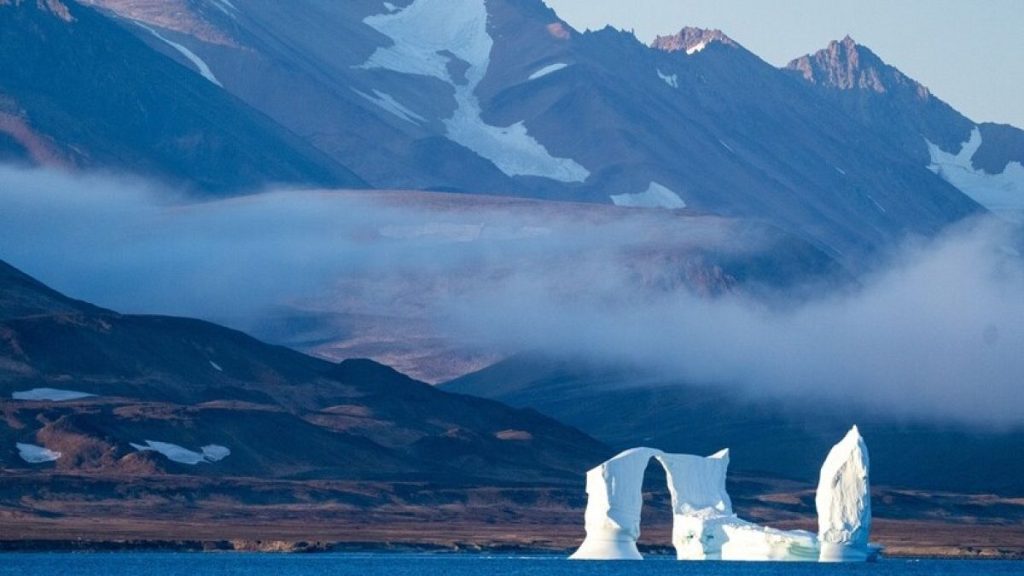The Danish government has unveiled a substantial investment plan to enhance Greenland’s defense capabilities in direct response to renewed assertions by former US President Donald Trump about acquiring the Arctic territory. Trump’s statements, reiterating his interest in purchasing Greenland, have been met with firm rejection from Greenlandic officials, underscoring the island’s self-determination and its people’s unwavering resolve to maintain control over their homeland. This renewed interest from the former US President has reignited a sensitive geopolitical discussion and prompted a proactive response from Denmark, aiming to reinforce Greenland’s security posture amid heightened international attention.
The Danish Defence Minister, Troels Lund Poulsen, announced the multi-billion kroner investment without specifying the exact amount, characterizing it as a “double-digit billion” figure. This substantial commitment to bolstering Greenland’s defenses signals a clear message of support from Copenhagen, recognizing the strategic importance of the island and the need to safeguard its autonomy. The investment, which could range from €1.34 billion to €13.27 billion, is expected to significantly upgrade Greenland’s defense infrastructure and capabilities, potentially including improvements to surveillance systems, military equipment, and personnel training. This investment will likely involve close cooperation between Denmark and Greenland, reflecting their ongoing relationship and shared security interests.
Trump’s renewed rhetoric, disseminated through his social media platform, Truth Social, framed the potential acquisition of Greenland as essential for “national security and freedom throughout the world.” This justification, echoing previous statements made during his presidency, emphasizes the strategic importance of the Arctic region, particularly in the context of increasing great power competition and the changing geopolitical landscape. However, this perspective overlooks Greenland’s self-governing status and the strong desire of its people to maintain their autonomy and cultural identity. The former president’s pronouncements, coming shortly after similar remarks about Canada and the Panama Canal, have been widely interpreted as provocative and have further fueled concerns about the potential militarization of the Arctic.
Greenland’s Prime Minister, Mute Egede, responded swiftly and unequivocally to Trump’s remarks, emphasizing Greenland’s inherent right to self-determination. His statement, declaring that Greenland is “not for sale and will never be for sale,” underscores the strength of Greenlandic identity and the island’s historical struggle for autonomy. Prime Minister Egede’s response reflects the widespread sentiment among Greenlanders against being treated as a commodity in international geopolitical maneuvering. This unwavering stance demonstrates the resilience of Greenland’s self-governance and its people’s determination to chart their own course.
The complex relationship between Greenland and Denmark forms the backdrop to this unfolding geopolitical drama. While Greenland enjoys a significant degree of self-governance, it remains constitutionally linked to Denmark. This historical tie, originating from Greenland’s past as a Danish colony, evolved in 1953 when Greenland transitioned to the status of a Danish district and later achieved full integration within the Danish realm. This nuanced relationship grants Greenlanders Danish citizenship and necessitates a delicate balance between respecting Greenland’s autonomy and maintaining Denmark’s overarching responsibility for its defense and foreign affairs. Denmark’s commitment to bolstering Greenland’s defense capabilities reinforces this relationship while also recognizing the need to protect the island’s interests in the face of external pressures.
The controversy surrounding Trump’s remarks underscores the growing geopolitical significance of the Arctic region. Greenland’s strategic location, coupled with its abundant natural resources and its vulnerability to the impacts of climate change, makes it a focal point of international interest. The Arctic’s increasing accessibility due to melting ice has opened up new possibilities for resource extraction, shipping routes, and military presence, sparking competition among global powers. This heightened attention necessitates a careful and considered approach to regional security, prioritizing cooperation and respect for the sovereignty of Arctic nations. Denmark’s investment in Greenland’s defense capabilities is a proactive step in navigating this complex geopolitical landscape, while Greenland’s firm stance on its self-determination sends a clear message about its resolve to control its own destiny.

